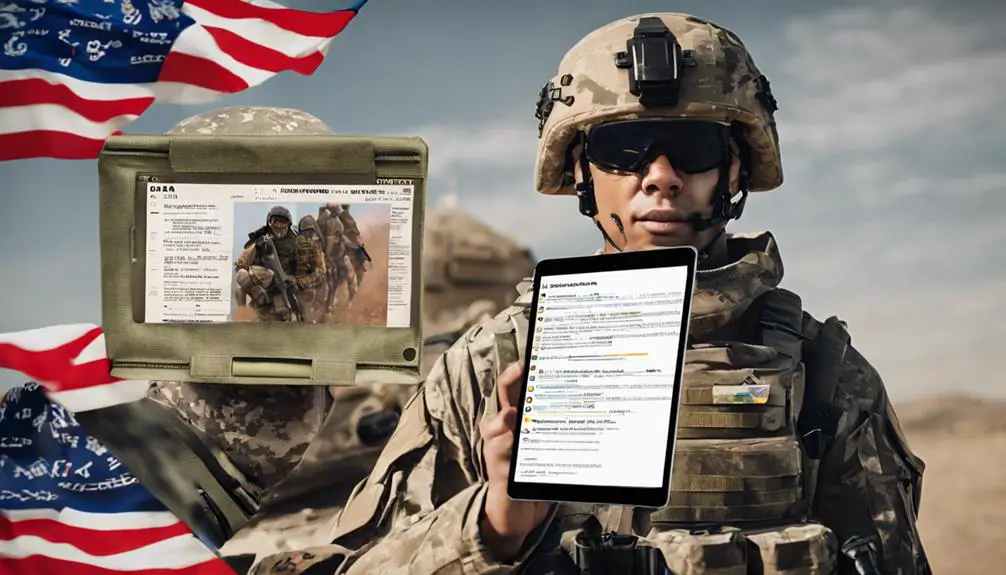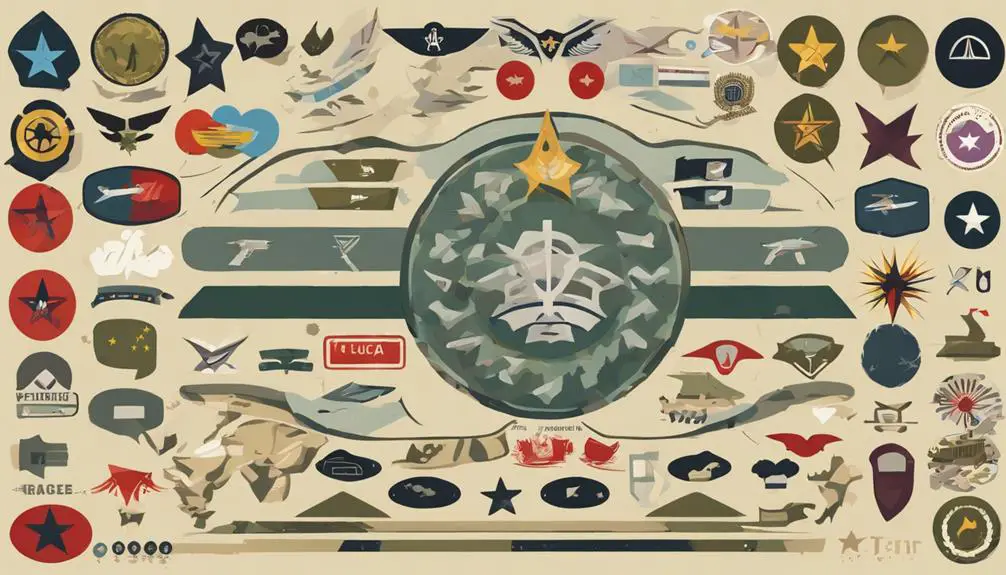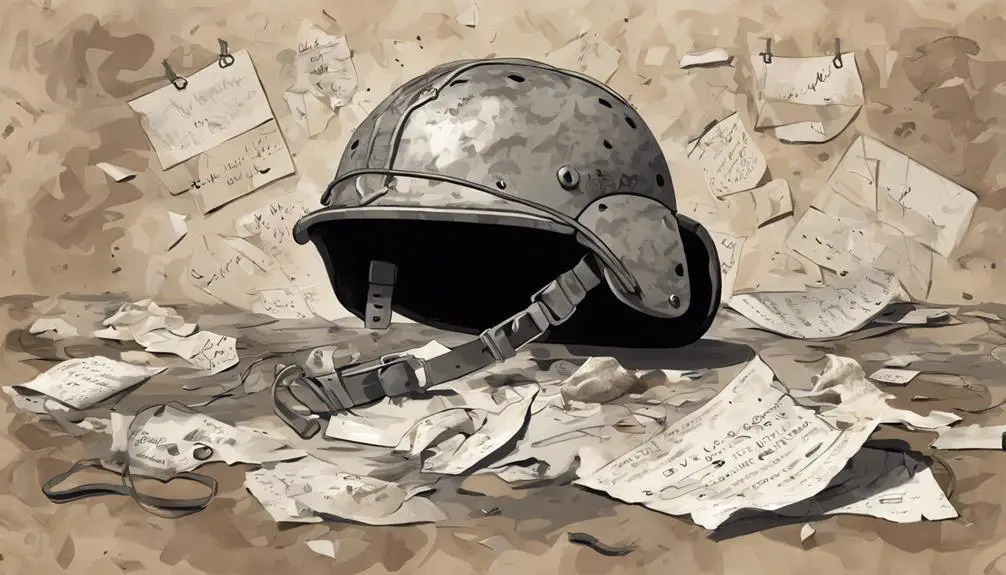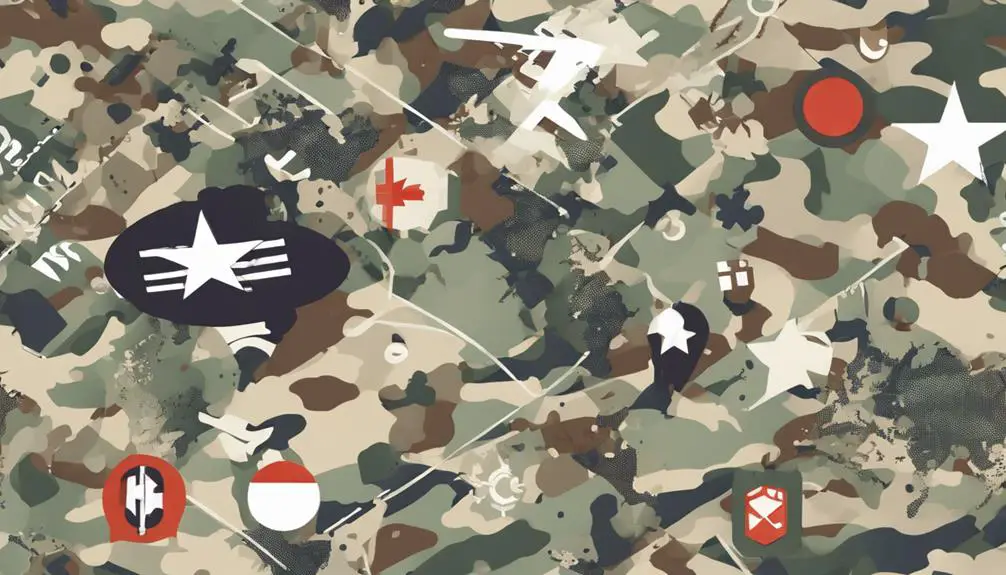You're about to enter a world where acronyms, slang, and codes are the norm. Military terminology is a unique language that's been shaped by the battlefield and the ranks. You'll find that each branch and rank has its own distinct slang, reflecting their unique experiences and perspectives. Tactical communication codes are used to convey critical information quickly and securely. And, unofficial expressions, often humorous, serve as a coping mechanism and foster camaraderie among service members. As you explore this world, you'll uncover the nuances of military terminology and discover how it's woven into the fabric of military culture, revealing more surprises along the way.
Decoding Military Acronyms

When you're immersed in military jargon, deciphering acronyms becomes an essential skill to navigate the complex landscape of military communication. Acronyms are omnipresent in military language, and understanding their origins is vital to effective communication.
The Acronym Origins can be traced back to the early 20th century when the military started using abbreviations to simplify complex terms. This practice was initially used to shorten lengthy names of military units, equipment, and operations.
As a codebreaker, you'll need a guide to navigate the vast array of acronyms used in military communication. A Codebreaker's Guide would reveal that acronyms are often derived from the first letter of each word in a phrase or name. For instance, 'SOP' stands for 'Standard Operating Procedure.'
Deciphering these abbreviations is critical to understanding military terminology, and a helpful guide can help you master this essential skill. By grasping the nuances of acronym origins and using a Codebreaker's Guide, you'll be well-equipped to navigate the complex world of military communication.
Battlefield Lingo and Jargon
As you explore beyond acronyms, you'll encounter a distinct language on the battlefield, where lingo and jargon are used to convey complex information quickly and efficiently. This language is comprised of combat idioms and war clichés that have been adopted over time. These phrases serve as a shorthand for conveying critical information in high-pressure situations.
| Term | Meaning | Example |
|---|---|---|
| 'Hooah' | Expression of enthusiasm or confirmation | 'Hooah, let's move out!' |
| 'SITREP' | Situation Report | 'Provide a SITREP on the enemy's position' |
| 'Oscar Mike' | On the Move | 'Oscar Mike, we need to reposition' |
In this unique language, words and phrases are often abbreviated or modified to convey complex ideas rapidly. By using these combat idioms and war clichés, military personnel can quickly communicate critical information, ensuring seamless coordination and effective decision-making in the heat of battle. As you probe deeper into military terminology, you'll discover a rich tapestry of lingo and jargon that facilitate swift and accurate communication on the battlefield.
Slang of the Ranks

From privates to generals, every rank has its own distinct slang that reflects their unique experiences and perspectives. You'll find that each rank has its own lingo, shaped by their role in the Rank Hierarchy.
Enlisted personnel, for instance, often use slang that's distinct from that of officers. This Enlisted Insights into military culture highlights the importance of understanding these nuances.
As you move up the ranks, you'll notice that slang evolves to reflect new responsibilities and challenges. For example, junior enlisted personnel might use terms like 'FNG' (freaking new guy) to describe new recruits, while senior non-commissioned officers might use 'butterbar' to refer to a second lieutenant. These terms not only reflect the user's rank but also their experience and perspective.
Understanding the slang of each rank is essential for effective communication and camaraderie within the military. By recognizing and using the appropriate slang, you can demonstrate your familiarity with military culture and build stronger relationships with your peers.
As you navigate the Rank Hierarchy, being aware of these linguistic differences will help you better connect with your fellow service members.
Tactical Communication Codes
You'll encounter tactical communication codes, which are standardized phrases and abbreviations used to convey critical information quickly and securely during missions. These codes are essential for effective communication, guaranteeing that messages are conveyed accurately and efficiently. They're used in various forms of communication, including radio protocol, where brevity and clarity are vital.
Tactical communication codes can be categorized into three main types:
| Code Type | Purpose | Example |
|---|---|---|
| Authentication Codes | Verify identities and ensure secure communication | 'Eagle-1' to confirm identity |
| Message Codes | Convey specific information, such as enemy positions | 'Bravo-6' to report enemy location |
| Cipher Systems | Encrypt messages for secure transmission | 'Sierra-12' to initiate encrypted communication |
Unofficial Military Expressions

In the midst of formal tactical communication, unofficial military expressions, also known as slang, emerge as a means for service members to quickly convey complex ideas and emotions in high-stress situations.
You may have noticed that these expressions often involve a dash of humor, which serves as a coping mechanism for the intense pressures of military life. This is what's referred to as 'Soldier's Humor.' It allows you to momentarily escape the gravity of your situation and find some levity in the chaos.
Moreover, these unofficial expressions often become ingrained in military folklore, passed down through generations of service members. They can take the form of acronyms, abbreviations, or colloquialisms that are unique to the military community. For instance, 'HOOAH' (Heard, Understood, Acknowledged) is a popular expression used to signify understanding and agreement.
These expressions not only facilitate communication but also foster a sense of camaraderie among service members. By embracing these unofficial expressions, you become part of a rich cultural heritage that defines the military experience.
Frequently Asked Questions
What Is the Origin of the Term "Grunt" for Infantry Soldiers?
You might wonder where the term 'grunt' originated for infantry soldiers. Historically, the roots of this term are murky, sparking etymological debate.
Some argue it stems from the sound soldiers make while carrying heavy packs, while others claim it's a shortened form of 'ground unit.' Despite the uncertainty, 'grunt' has become a widely accepted term, symbolizing the infantry's toughness and resilience.
You'll find this term used across various military branches, transcending its unclear beginnings.
Are Military Slang Terms Used Universally Across All Branches?
As you explore the world of military language, you'll find that slang terms aren't universally used across all branches. Branch variations and service differences play a significant role in shaping unique vocabularies.
What's common in the Army mightn't be familiar in the Navy or Air Force. You'll notice that each branch has its distinct culture and terminology, reflecting their specific needs and histories.
Can Civilians Use Military Slang Without Being Offensive?
When using slang from a specific culture or group, you might wonder if you're appropriating their language. Take, for instance, a civilian using the phrase 'hump day' (originally from the military) to refer to Wednesday.
While it might seem harmless, it raises questions about cultural appropriation and language ownership. When borrowing terms, consider the context and potential impact on the original community.
Be mindful of the fine line between appreciation and appropriation, ensuring you're not disrespecting the language's roots.
How Do Military Slang Terms Evolve Over Time?
As you explore how slang terms evolve, you'll find that linguistic adaptation plays a significant role. New words and phrases emerge as cultural evolution occurs, often in response to changing social norms or technological advancements.
This process is organic, with words and meanings shifting over time to reflect the needs and values of the community using them. In the context of military slang, this adaptation is accelerated by the unique experiences and cultural nuances of military life.
Are Military Slang Terms Used Exclusively for Communication or Also for Bonding?
As you explore the world of military slang, you'll find that it's not just about conveying information. It's about forging bonds, fostering a sense of camaraderie that transcends ranks and units.
The use of slang becomes a badge of honor, symbolizing shared experiences and a deeper connection among comrades. This esprit de corps, this sense of belonging, is just as vital as the message itself.
Conclusion
As you've navigated the world of military terminology slang, you've likely gained a new appreciation for the complexities of communication in the armed forces.
Surprisingly, it's estimated that the US military uses over 15,000 unique acronyms and abbreviations – a remarkable demonstration of the importance of clear communication in high-stakes situations.
By understanding these terms, you've taken a vital step in deciphering the language of the military.







